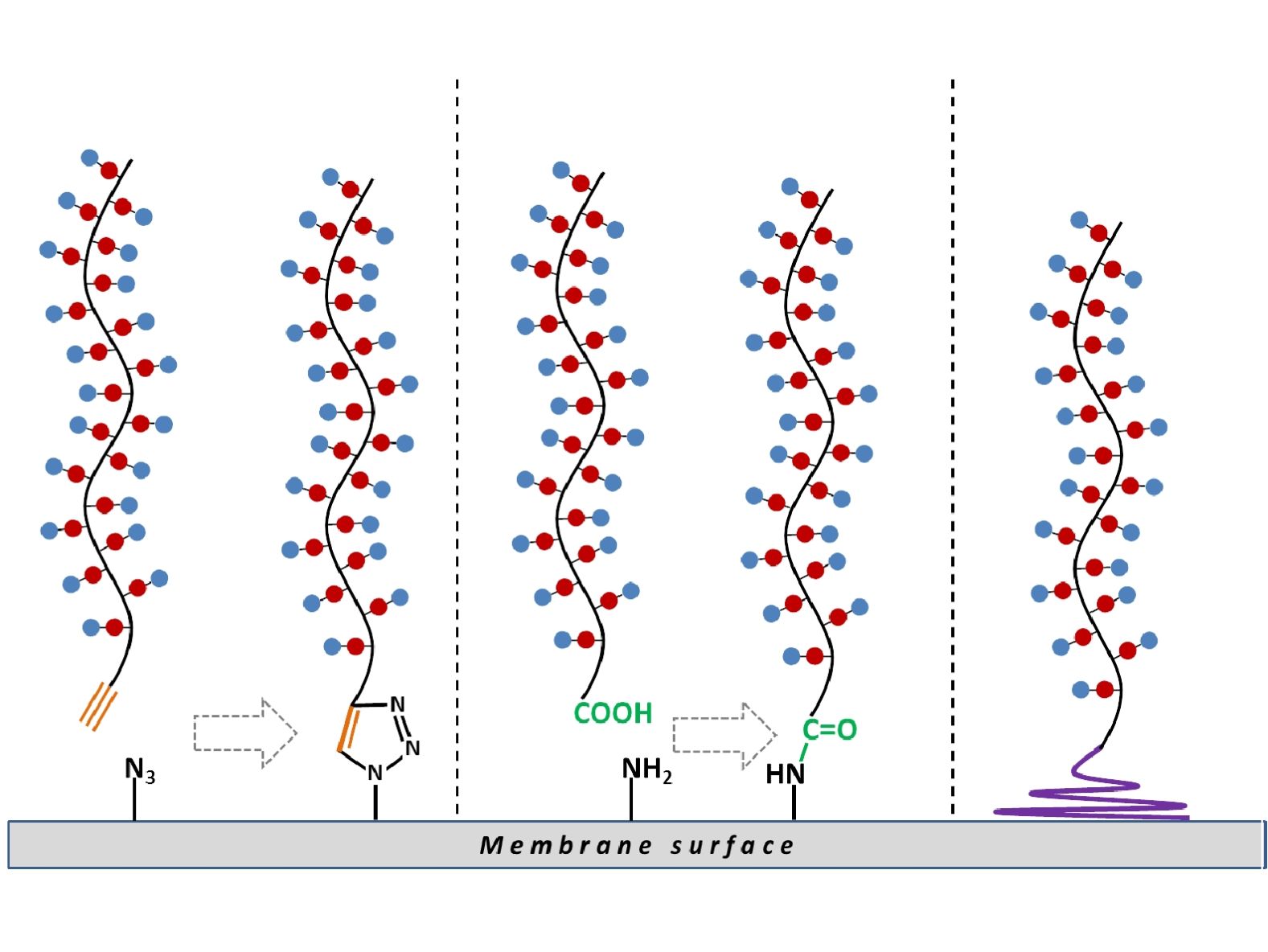Description
Extracorporeal therapies are clinically applied for organ support or to remove pathogenic factors from the circulation. They are established for liver support, treatment of autoimmune diseases, and lipid apheresis. Adsorptive apheresis can be implemented as plasma sorption after separation of the blood cells via filters or centrifugation or as hemosorption directly from whole blood. While easier to implement from a technical point of view, whole blood apheresis requires adsorbent polymers with excellent blood compatibility to minimize the activation and adhesion of blood cells to the adsorbent polymers.
This project aims at the development of zwitterionic polymers with excellent blood compatibility that can be applied as hemosorbents to remove low-density lipoproteins in lipid apheresis. The specific aims are to develop zwitterionic coatings for methacrylate-based polymers to generate highly blood compatible, functionalizable adsorbent matrices, to characterize the adsorption properties and blood compatibility of the resulting polymers, and to correlate these parameters to their physico-chemical characteristics.
This project will broaden the spectrum of application for extracorporeal therapies and enhance our understanding of the correlation between the adsorbent surface morphology (charge, porosity, surface roughness) and blood compatibility. The project will further our knowledge of the processes occurring at the adsorbent-blood interface, help to elucidate the mechanisms that contribute to cellular activation during apheresis, and support the design of new blood compatible materials.
Funding: Country of Lower Austria, EFRE
Details
| Duration | 01/01/2017 - 31/12/2020 |
|---|---|
| Funding | Bundesländer (inkl. deren Stiftungen und Einrichtungen) |
| Program | Technopol |
| Department | |
| Principle investigator for the project (University for Continuing Education Krems) | Univ.-Prof. Dipl.-Ing. Dr. Viktoria Weber |




_Skokanitsch_Magnolia%20(210x280px).jpg)